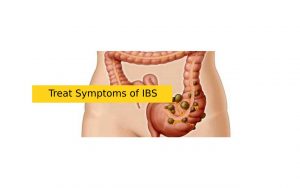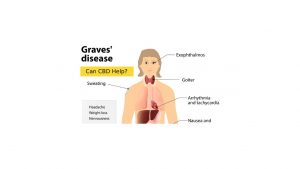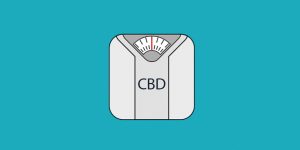CBD’s impact on appetite is currently unclear, which may be due to the presence of other cannabinoids included with CBD in the oil extract such as THC (which increases appetite). On the other hand, there have been some promising signs that CBD can help with weight control. It appears that CBD may aid with metabolism, metabolic disorders, and converting white fat cells to brown fat cells. Overall, CBD is worthy of more research into its effects on weight and weight-related conditions.
When most people think of cannabis-derived products and appetite, they think of getting the “munchies.” However, this may not be the case for cannabidiol. In fact, CBD may aid weight loss. If you are curious about whether CBD use will affect your weight, you aren’t alone. Smart CBD Hub has explored the latest research and what it says about CBD and appetite.
The impact of CBD on appetite is currently somewhat unclear. A 2005 study indicates that the endocannabinoid system plays a key role in appetite. This suggests that using CBD should have an effect on appetite. However, the results regarding that effect vary.
Some research suggests that CBD may suppress appetite and reduce food intake. However, some users report the complete opposite. This discrepancy may relate to the other cannabinoids included with the CBD in the oil extract. In particular, THC is believed to increase appetite.
Research has found that cannabis use is associated with lower obesity rates. A 2011 review of national surveys including over 50,000 participants identified a substantially lower rate among regular users.
There are some promising signs that CBD may help with weight control. In addition to the above, it appears that CBD and metabolism may have a positive relationship. It is even possible that using CBD oil for metabolic disorders may be an effective and safe intervention.
Another significant impact relates to CBD Oil and White and Brown Fat Cells Interaction. Humans have two main types of fat cells: white and brown. The former type is energy stored as fat and is associated with many health problems. The latter type is associated with burning calories for heat. A 2018 study indicates that CBD converts white fat cells into brown. Along with exercise, this suggests that CBD may help with burning calories.
Overall, CBD is worthy of more research into its effects on weight and weight-related conditions. Notably, it is largely free of major side effects, making it safer than many other weight and appetite control interventions. Nonetheless, the most commonly reported side effect of CBD use is appetite change. If this is undesired, it may have some negative impacts.
Learn more about how CBD can affect weight and other health issues. Smart CBD Hub is your source for information and news about cannabidiol, its uses and its benefits. Check back regularly to stay up to date on research and more.

How Is CBD Different from Other Stomach Pain Conditions? You may remember having stomachaches as a child. These pains can be caused by indigestion, a...
Read More
What Are the Main Symptoms of IBS? IBS is classified as either IBS-C and IBS-D, depending on whether the patient deals with a large intestine...
Read More
Graves’ disease is an autoimmune disorder that results in hyperthyroidism or the overproduction of the thyroid hormone. Though several conditions can cause hyperthyroidism, Graves’ disease...
Read More
: An allergic reaction is your body's overreaction to a stimulus that is not usually harmful. CBD reduces inflammation and helps the body course correct.
Read More
Many pets are food-motivated, meaning they will do almost anything for that treat you’re holding tauntingly out of reach. So, when your dog or other...
Read More
While some studies have shown that CBD may boost metabolism and help convert white fat to brown, CBD oil is not recommended as an effective...
Read More